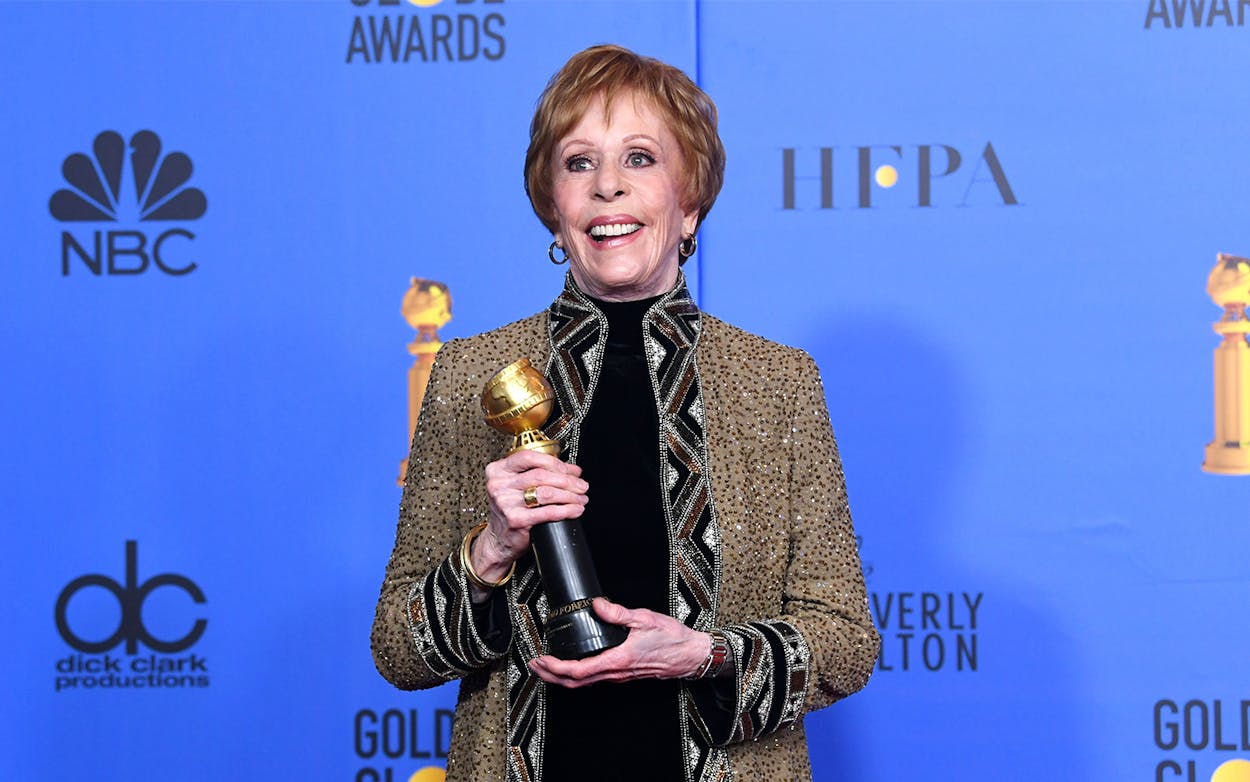There are few figures who loom larger in television than Carol Burnett. Early in her career, the San Antonio native was a fixture in many of the most important shows of the fifties and sixties—variety programs like The Paul Winchell Show and The Jack Benny Program, series such as The Twilight Show and Get Smart—and then went on to helm the transformative Carol Burnett Show from 1967 to 1978. Without that progressive comedy and variety hour, there’d be no Saturday Night Live or any of its antecedents. In the decades since her program ended, Burnett’s remained relevant essentially whenever she chooses to be—for an Emmy-nominated turn on Larry Sanders, Mad About You, or Law & Order: SVU, popping up on shows like Glee and Hawaii Five-O, or lending her talents to the sort of absurdist comedy that’s only possible because of her trailblazing career on TBS’s Angie Tribeca.
So when the Hollywood Foreign Press Association created a new annual award to honor a lifetime achievement in television as part of the Golden Globes ceremony, it seemed downright intuitive to name it the Carol Burnett Award. That prize (which will stand as a counterpart to the Cecil B. DeMille Award for a lifetime achievement in film) was presented for the first time last night to none other than Burnett herself.
The presentation of the first annual Carol Burnett Award was an emotional moment in the ceremony. She reflected on the changes in the industry. She discussed how, if the 85-year-old comedian were starting out now, she’d never have the resources she had in the sixties—there would be no live orchestra, no dancers, no 65 costume changes per episode—and closed out by saying, once more, how happy she was that we’d had this time together.
Making Burnett not just the first honoree of the award, but its perennial namesake, is a fitting tribute to her career, and a fitting way to ensure that her legacy endures for decades to come. In 1952, the first DeMille award was also given to its namesake. DeMille died five years later, but for most of the past seven decades, his name has been synonymous with a lifetime achievement in film during the Globes ceremony. It’s been awarded to people who were born after his death, like Jodie Foster and George Clooney. It’s been given to people whose careers were relatively young at the time—Charlton Heston received his in 1967, after only seventeen years in Hollywood—and to those whose careers had essentially been completed (Alfred Hitchcock directed only one more film after receiving his in 1972). It’s also been awarded, primarily, to men: of the 66 recipients, only 15 of them have been women.
An award named after Carol Burnett, though, seems like it might have been intended as an intentional reminder for the HFPA to consider the accomplishments of women. That’s a need that the Globes, and Hollywood in general, have been more conscious of in recent years. There’s still a long way to go—at last night’s ceremony, for example, no women were nominated for a directing award, and only three of the nominated television shows were created by women. But planting a signpost with Carol Burnett’s name on it is a nice way to start.
- More About:
- Film & TV
- Television








